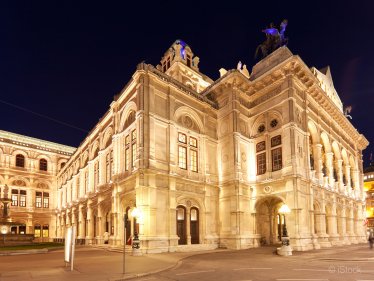Carmen - Schedule, Program & Tickets
Carmen
Text Henri Meilhac & Ludovic Halévy after Prosper Mérimée
Opéra comique in four acts
Musical direction
Alexander Soddy
Staging
Calixto Bieito
Scenic rehearsal
Joan Anton Rechi
Stage
Alfons Flores
Costumes
Mercè Paloma
Light
Alberto Rodriguez Vega
Carmen
Eve-Maud Hubeaux
Don José
David Butt Philip
Escamillo,Toreador
Erwin Schrott
Micaëla
Slávka Zámečníková
Contents
It's a tale of misunderstandings: mistaking love for desire, an affair for an exclusive relationship, affection for possessiveness, and violence for passion. But the ultimate price in this web of dysfunctional connections is paid by Carmen - a woman who loves her independence more than anything else, including men. Her killer is the dutiful soldier Don José, who previously only had eyes for his mother and young Micaëla, with whom he grew up. But when he becomes aware of the worker Carmen, who is coveted by all his comrades, it's all over for him too. After Carmen's arrest due to a bloody assault, José enables her to escape and follows her into illegality, both now living in a gang of smugglers. But living together, José puts pressure on Carmen with his jealousy and loses her affection. When he returns from a visit to his mother, he finds that Carmen now loves the successful bullfighter Escamillo. Although Carmen knows about José's tendency towards uncontrolled violence, she faces the confrontation. While Escamillo hunts down a bull in the arena, José stabs his former girlfriend in the forecourt.
At the premiere in 1875, the Parisian audience found the fact that the opera was only played among the lower classes of society, among soldiers, smugglers, Spanish Roma and factory workers, shocking. The fact that the dying title heroine is denied a farewell aria was felt to be an expression of harshness and violence. Only with the Viennese series of performances in the same year did the triumph of Carmen begin. Two musical motifs characterize the opera: the self-assured refrain of the famous »Toréador« song and a mysterious, sombre motif connected to Carmen's untimely and violent death, which she feels is fateful. When the victorious torero is cheered in the finale in the bullring while the stabbed Carmen collapses in front of her gates, the two melodies meet.
The literary basis of the opera - a novel of the same name by Prosper Mérimée - shows Carmen as a morally depraved person who unscrupulously exploits men for their own purposes or even lures them into deadly traps. Georges Bizet and his librettists, on the other hand, transformed their main character into a fascinating woman who is so attractive to men precisely because she rejects traditional ideas. Not with her looks, but with her voice, she attracts Don José's attention by singing a habanera, a dance song of Afro-American origin: »L'amour est un oiseau rebelle« (»Love is a rebellious bird«). Carmen's dazzling and unconventional personality is reflected in her powerful and delicate singing role.
The character of Micaëla does not exist in the literary original, she was invented by Bizet and his librettists as a counter-character to Carmen. The music portrays her as gentle instead of short-tempered, as yielding and familiar instead of demanding and strange: her love and the love of José's mother, whose messenger she is, can hardly be separated. But Micaëla also has another, courageous and strong side, which shows at the latest when she overcomes her fear and follows Don José on his way, in order to separate him from the gang of smugglers and bind him to her. It remains to be seen whether she is telling the truth when she persuades Don José to come with her by claiming that his mother is dying.
After Calixto Bieito's fame as a drama director, Carmen in 1999 was his first major opera directorial effort. Since then he has revised and refined this legendary production several times. For him, Carmen is neither the male fantasy of a femme fatale nor a symbol of emancipation, but an individual personality. Bieito shows the world of soldiers, workers and crooks in a Spanish border area free of »gypsy« kitsch and clichéd images; Flamenco is only quoted ironically among Carmen's friends. But bullfighting is both a living tradition and a symbol of a fight between two people – or is it the other way around? Incidentally, this production is also a declaration of love from the director to the people of his home country.
A visit to the performance is recommended from the age of 14.
Subject to change.
Opéra comique in four acts
Musical direction
Alexander Soddy
Staging
Calixto Bieito
Scenic rehearsal
Joan Anton Rechi
Stage
Alfons Flores
Costumes
Mercè Paloma
Light
Alberto Rodriguez Vega
Carmen
Eve-Maud Hubeaux
Don José
David Butt Philip
Escamillo,Toreador
Erwin Schrott
Micaëla
Slávka Zámečníková
Contents
It's a tale of misunderstandings: mistaking love for desire, an affair for an exclusive relationship, affection for possessiveness, and violence for passion. But the ultimate price in this web of dysfunctional connections is paid by Carmen - a woman who loves her independence more than anything else, including men. Her killer is the dutiful soldier Don José, who previously only had eyes for his mother and young Micaëla, with whom he grew up. But when he becomes aware of the worker Carmen, who is coveted by all his comrades, it's all over for him too. After Carmen's arrest due to a bloody assault, José enables her to escape and follows her into illegality, both now living in a gang of smugglers. But living together, José puts pressure on Carmen with his jealousy and loses her affection. When he returns from a visit to his mother, he finds that Carmen now loves the successful bullfighter Escamillo. Although Carmen knows about José's tendency towards uncontrolled violence, she faces the confrontation. While Escamillo hunts down a bull in the arena, José stabs his former girlfriend in the forecourt.
At the premiere in 1875, the Parisian audience found the fact that the opera was only played among the lower classes of society, among soldiers, smugglers, Spanish Roma and factory workers, shocking. The fact that the dying title heroine is denied a farewell aria was felt to be an expression of harshness and violence. Only with the Viennese series of performances in the same year did the triumph of Carmen begin. Two musical motifs characterize the opera: the self-assured refrain of the famous »Toréador« song and a mysterious, sombre motif connected to Carmen's untimely and violent death, which she feels is fateful. When the victorious torero is cheered in the finale in the bullring while the stabbed Carmen collapses in front of her gates, the two melodies meet.
The literary basis of the opera - a novel of the same name by Prosper Mérimée - shows Carmen as a morally depraved person who unscrupulously exploits men for their own purposes or even lures them into deadly traps. Georges Bizet and his librettists, on the other hand, transformed their main character into a fascinating woman who is so attractive to men precisely because she rejects traditional ideas. Not with her looks, but with her voice, she attracts Don José's attention by singing a habanera, a dance song of Afro-American origin: »L'amour est un oiseau rebelle« (»Love is a rebellious bird«). Carmen's dazzling and unconventional personality is reflected in her powerful and delicate singing role.
The character of Micaëla does not exist in the literary original, she was invented by Bizet and his librettists as a counter-character to Carmen. The music portrays her as gentle instead of short-tempered, as yielding and familiar instead of demanding and strange: her love and the love of José's mother, whose messenger she is, can hardly be separated. But Micaëla also has another, courageous and strong side, which shows at the latest when she overcomes her fear and follows Don José on his way, in order to separate him from the gang of smugglers and bind him to her. It remains to be seen whether she is telling the truth when she persuades Don José to come with her by claiming that his mother is dying.
After Calixto Bieito's fame as a drama director, Carmen in 1999 was his first major opera directorial effort. Since then he has revised and refined this legendary production several times. For him, Carmen is neither the male fantasy of a femme fatale nor a symbol of emancipation, but an individual personality. Bieito shows the world of soldiers, workers and crooks in a Spanish border area free of »gypsy« kitsch and clichéd images; Flamenco is only quoted ironically among Carmen's friends. But bullfighting is both a living tradition and a symbol of a fight between two people – or is it the other way around? Incidentally, this production is also a declaration of love from the director to the people of his home country.
A visit to the performance is recommended from the age of 14.
Subject to change.
There are no products matching the selection.








